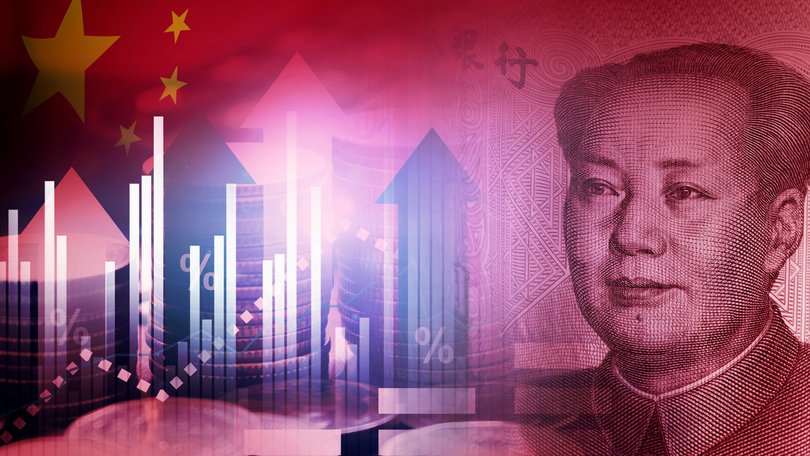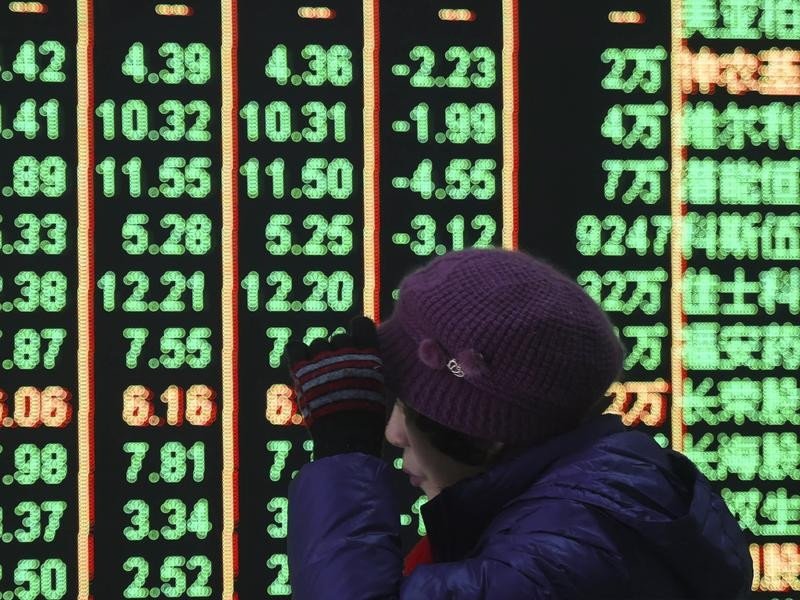THE ECONOMIST: China stock market boom raises bubble fears while shoppers cut back and retail sales stagnate

SOME call it 9/24 for short. On September 24 last year China’s officials decided to engineer a rally in the moribund stockmarket.
The central bank, flanked by financial regulators, cut interest rates and bank reserve requirements. It also made it easier for firms to buy back their shares and for institutional investors to leverage their balance-sheets. The markets took the hint. Buy “everything”, advised David Tepper, an American hedge-fund manager.
A year later, the Shanghai Composite, an index of pretty much everything that can be bought on the Shanghai Stock Exchange, is up by about 40 per cent. The rally drew strength in its early stages from the promise of fiscal stimulus and the enthusiasm for homegrown artificial intelligence.
Sign up to The Nightly's newsletters.
Get the first look at the digital newspaper, curated daily stories and breaking headlines delivered to your inbox.
By continuing you agree to our Terms and Privacy Policy.More recently it has gained momentum from the government’s efforts to discourage price wars and other ruinous competition, which, though good for consumers, are bad for the profits on which shareholders have the final claim.
Last month the index surpassed 3800 for the first time in ten years. But the government’s ultimate goal was not merely to revive the market. It hoped the market would help revive the economy, too. Unfortunately, the economy has refused to take the hint.
High stock prices can provide a lift to shareholders’ paper wealth and morale, which might encourage them to spend — what economists call the “wealth effect”.
Rich valuations can also give companies the means and the motivation to expand their businesses. On top of this, a buoyant, bustling stockmarket improves the fortunes of the brokers, dealers and banks that handle share purchases and finance them. Their services, although intangible, are a part of the economy.
The stockmarket revival does seem to have increased the risk appetite of households. After years of hoarding cash, especially during the COVID pandemic, they are now accumulating bank deposits at a less determined pace.

Meanwhile, the number of new share-trading accounts opened since 9/24 in Shanghai may exceed 30m by the end of September. Bulls talk hopefully of a “tectonic shift” out of deposits into stocks.
Before the rally began, only 12 per cent of urban depositors said that they were inclined to make more investments, according to the central bank’s quarterly survey. In the first quarter of this year, that percentage was up to 14 per cent, although it has slipped a little since then.
Greater faith in the market has not stirred optimism about the economy, however. Consumer confidence, which collapsed during the pandemic, remains low.
Household spending on goods and services has also been disappointing. Retail sales in August grew by only 3.4 per cent year on year, before adjusting for inflation. “Buy everything” has not extended from the financial bourses to the shop shelves.
What about corporate spending? Hong Kong has enjoyed a listings bonanza this year. But initial public offerings (IPOs) on the mainland have been subdued.
In April 2024 regulators raised listings standards after a stockmarket rout earlier in the year, which cost Yi Huiman, head of the securities regulator, his job. Although the tighter standards have helped preserve market momentum, by strengthening investors’ rights and limiting the supply of new shares, they have also made the stockmarket harder to tap as a source of capital.
Of all the money raised by non-financial companies in the year to August, only 1 per cent was provided by the equity market. China’s regulators are wrapping a safety blanket around retail investors at the cost of putting a wet blanket on business investment. Mr Yi, meanwhile, is now being investigated for “serious violations of discipline”.
China’s stockmarket has rarely been a big source of finance for firms. Yet even if it does not provide the money for investment, the market can provide the motivation.
In theory, companies will be keen to expand if markets place a higher value on their assets than the cost of reproducing them. In practice, things are different.
Fixed-asset investment fell by over 6 per cent in the year to August. The government’s injunctions against ruinous competition, including reckless expansions of capacity, may have contributed.
Although corporate restraint may be good for the profitability and market value of firms, a heedless capex splurge would be better for demand.

The stockmarket is not just a barometer of the economy; it is also part of it. Financial institutions that serve the market, offering margin loans, brokerage accounts and so on, contribute to GDP. Sometimes they make a measurable difference to growth.
During the stockmarket bubble of 2015, these activities soared. The turnover of shares rose by more than 900 per cent in the year to the second quarter of 2015.
One woman in Wuhan was dubbed a “stockmarket widow” after complaining online about losing her husband to his trading obsession. But although it made a negative contribution to some marriages, this uptick in financial activity helped the sector grow by 23 per cent in nominal terms in the second quarter of 2015, compared with a year earlier. It accounted for about 16 per cent of the economy’s growth that year.
This time round, higher trading volumes have had a more muted impact on GDP: the financial sector has grown by only 4 per cent in nominal terms so far this year, compared with last.
One reason is that brokers’ fees have dropped, reducing the recorded value of the services they provide.
Average commission has fallen from about 0.08 per cent in 2014 to about 0.02 per cent today, according to Lu Ting of Nomura, a bank. The boom in stock trading has also been overshadowed by the weak profits of China’s banks, which still dominate the sector.
Other parallels with 2015 make the government nervous. The past year’s rally has already lasted longer than the more frenzied bubble of a decade ago. Margin financing — stocks bought with money borrowed from brokers — has exceeded the 2015 record.
One broker raised margin requirements last month, limiting the leverage its customers could take on.
Regulators have also urged banks to investigate the misuse of other loans for share purchases, according to Bloomberg, a news agency. It says that social-media platforms have been warned not to give too much publicity to the bull market.
The government is understandably afraid of another bubble. Such fear may delay further cuts in interest rates or reserve requirements by the central bank. But hesitation also poses risks. Deflation remains entrenched: factory-gate prices have been falling year on year for 35 months.
Consumer-price inflation turned negative in August. The economic slowdown could worsen if exports falter and the property slump persists.
The central bank started the stockmarket rebound a year ago in the hope of lifting the economy. It would be ironic if officials’ fear of what they have unleashed hurts the economy more than the rally has helped.
Originally published as China’s stockmarket rally may hurt the economy
